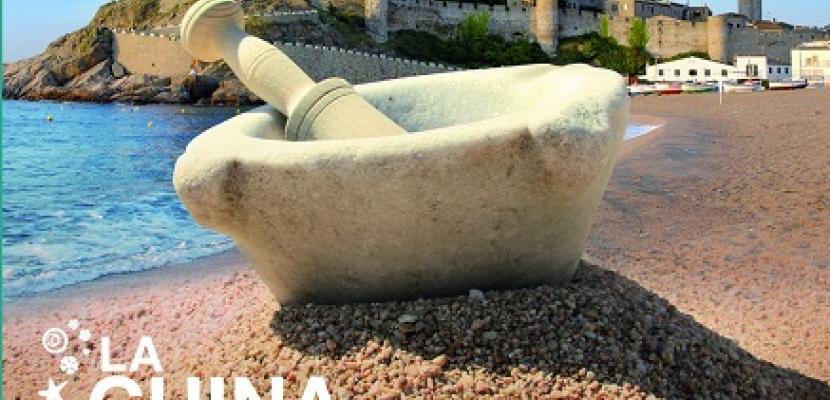Image

Traditional Catalan Cuisine of Tossa de Mar as a driving force for a sustainable food tourism
Published on 18 July 2018

Spain
Cataluña
This is the good practice's implementation level. It can be national, regional or local.
About this good practice
Food experiences for local, visitors and tourists based on networking strategies and gastronomy intangible heritage can contribute to reinforce the destination through promotion of local products and the traditional cuisine.
The traditional agro-food production and the hunting, fishing and gathering practices in the mountains and coastal area of Tossa de Mar have characterized local products and the traditional cuisine of this Mediterranean village, the third destination of Costa Brava after Lloret de Mar and Roses.
The objective from 2009, Tossa de Mar City Council and some local enterprises starts a strategy to change for a most sustainable and quality tourism model focused in its local culinary traditions and cultural landscapes. The growing special interest group of food and gastronomic tourists provides a unique opportunity for both tourism and food sector. These different initiatives includes local products, culinary heritage, new business opportunities and an innovative way to promote gastronomy as essential part of the tourism experience:
• The creation of the brand “Cuina Tradicional Tossenca” (traditional cuisine of Tossa de Mar), comprising the traditional cuisine restaurants;
• “Tossa Dolça” (Sweet Tossa), network of local bakeries and pastries that have turned some of its creations in food 'souvenirs';
• The organization of gastronomic monthly events, such as the codfish (February), noodles (June) or "cim-i-tomba" (September).
The traditional agro-food production and the hunting, fishing and gathering practices in the mountains and coastal area of Tossa de Mar have characterized local products and the traditional cuisine of this Mediterranean village, the third destination of Costa Brava after Lloret de Mar and Roses.
The objective from 2009, Tossa de Mar City Council and some local enterprises starts a strategy to change for a most sustainable and quality tourism model focused in its local culinary traditions and cultural landscapes. The growing special interest group of food and gastronomic tourists provides a unique opportunity for both tourism and food sector. These different initiatives includes local products, culinary heritage, new business opportunities and an innovative way to promote gastronomy as essential part of the tourism experience:
• The creation of the brand “Cuina Tradicional Tossenca” (traditional cuisine of Tossa de Mar), comprising the traditional cuisine restaurants;
• “Tossa Dolça” (Sweet Tossa), network of local bakeries and pastries that have turned some of its creations in food 'souvenirs';
• The organization of gastronomic monthly events, such as the codfish (February), noodles (June) or "cim-i-tomba" (September).
Resources needed
Human resources for the preservation, documentation and promotion of gastronomy intangible heritage, local products and traditional cusine, for sustainable cultural tourism product development and marketing actions.
Evidence of success
• “Cim-i-tomba Route” between Tossa and Ripoll connect both places historically united from Medieval times for its dependency of the Monastery of Ripoll.
• Creative cuisine establishments such as the “Cuina de Can Simón” restaurant, which boasts a Michelin star, and the “Boutique Hotel Casa Granados”, member of the Gastronomy Hotels seal promoted by Catalan Tourism Agency. Both also maintain some traditional dishes with more creative presentations.
• The Museum of Catalan Coast Cuisine.
• Creative cuisine establishments such as the “Cuina de Can Simón” restaurant, which boasts a Michelin star, and the “Boutique Hotel Casa Granados”, member of the Gastronomy Hotels seal promoted by Catalan Tourism Agency. Both also maintain some traditional dishes with more creative presentations.
• The Museum of Catalan Coast Cuisine.
Potential for learning or transfer
Tossa de Mar is one of the most active members involved in the project “Catalonia European Region of Gastronomy 2016” promoted by Generalitat of Catalonia, the regional government.
Traditional cuisine in Tossa de Mar is mainly associated to the Catholic liturgical agenda, festive events and social practices expressed with specific meals to share with family, friends and invited people. Immaterial cultural heritage in the village is associated with a cultural tourism development with an interactive relationship between local people and visitors. The exception is the pilgrimage related to the St Sebastien. In this case, tourists are not accepted, only during the second day they can wait the arrival of the pilgrim’s father to the village.
Tossa de Mar won the 3rd prize in the Cultural Tourism Awards in 2016 for Intangible Heritage Tourism.
Local gastronomy and traditional cuisine as a visitir attaction for sustainable cultural tourism has great potential for transfer to other cities.
Traditional cuisine in Tossa de Mar is mainly associated to the Catholic liturgical agenda, festive events and social practices expressed with specific meals to share with family, friends and invited people. Immaterial cultural heritage in the village is associated with a cultural tourism development with an interactive relationship between local people and visitors. The exception is the pilgrimage related to the St Sebastien. In this case, tourists are not accepted, only during the second day they can wait the arrival of the pilgrim’s father to the village.
Tossa de Mar won the 3rd prize in the Cultural Tourism Awards in 2016 for Intangible Heritage Tourism.
Local gastronomy and traditional cuisine as a visitir attaction for sustainable cultural tourism has great potential for transfer to other cities.
Further information
Website
Good practice owner
You can contact the good practice owner below for more detailed information.
Organisation
City Council of Tossa de Mar

Spain
Cataluña
Contact
Secretary-General
